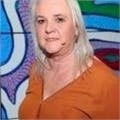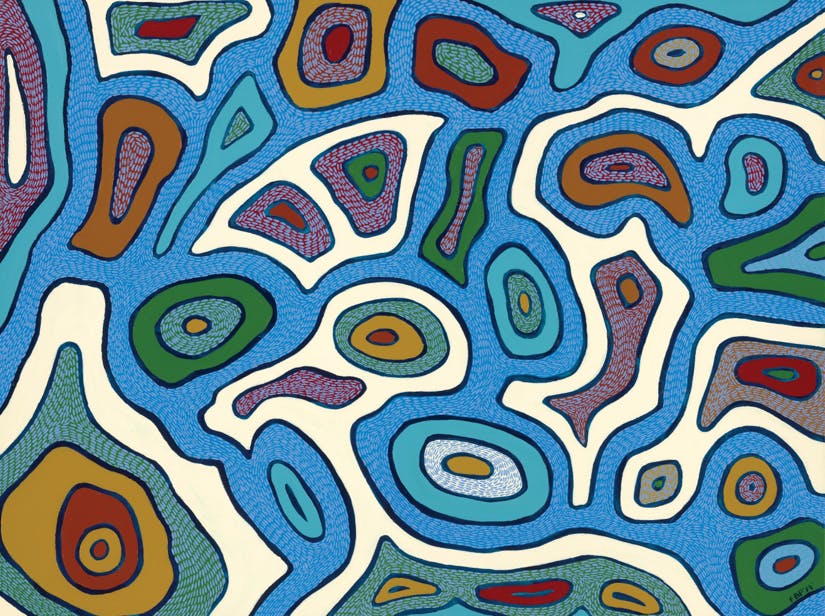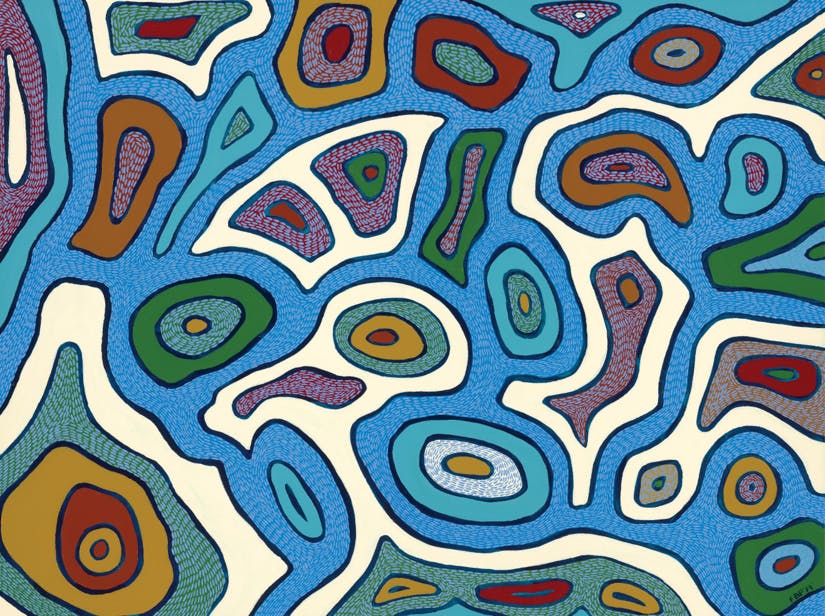Help to shape our next chapter of reconciliation
Consultation has concluded
As we continue on our journey to reconciliation at Transport for NSW we are now developing our second Reconciliation Action Plan (RAP), moving from an Innovate RAP to Stretch RAP.
Please check out the information on the right hand side of this page, take a look at the progress we've made since our first RAP commenced in 2019 and most importantly please have your say by completing the consultation survey.
You can also provide further feedback via the Ideas tab on this site or by emailing the RAP Team: RAPTeam@transport.nsw.gov.au
As we continue on our journey to reconciliation at Transport for NSW we are now developing our second Reconciliation Action Plan (RAP), moving from an Innovate RAP to Stretch RAP.
Please check out the information on the right hand side of this page, take a look at the progress we've made since our first RAP commenced in 2019 and most importantly please have your say by completing the consultation survey.
You can also provide further feedback via the Ideas tab on this site or by emailing the RAP Team: RAPTeam@transport.nsw.gov.au
-
About Transport's RAP Artwork
‘Our Songlines are Calling’ by Frances Belle Parker (Yaegl Woman)
Commissioned for the Transport for NSW Innovate Reconciliation Action Plan (RAP) 2019-2021
‘Our Songlines are Calling’ is a painting which shows the importance of our Traditional Songlines when travelling through country.
As Aboriginal people, we have navigated the country for thousands of years and in that time our natural travelling routes became our Songlines. This is the country in which the landscape sang us home, singing, walking, meeting, sharing and celebrating were regular occurrences when we followed our Songlines. We listened to the Country and in return we were guided safely to our destination.
The view featured is an aerial view in a topographical mapping to symbolise various aspects of Country within NSW. The colours used are to represent the varying aspects of the landscape across NSW, the water which runs from numerous river systems towards the coastline, the bush, desert, and mountains. The small linear markings are representative of the tracks we made whilst we travelled our Songlines.
-
Signs reinforce cultural connections

Signposting Country using Aboriginal language and art on NSW State Roads reinforces the deep connection Aboriginal people have with the land and helps develop an understanding in the wider community about the importance of that connection.
Many of the transport routes we use today including rail lines, roads and water crossings follow the traditional Songlines, trade routes and ceremonial paths on Country that Aboriginal people followed for tens of thousands of years.
Protocols for welcoming visitors to Country have been a part of Aboriginal culture for thousands of years.
In December 2020 the first Acknowledgement of Country signs were installed on NSW state roads, on Yaegl Country (around Maclean and Yamba) and on Darkinjung Country (near the Central Coast).
Installing signs which acknowledge Country recognises Aboriginal people as the First Australians who have an ongoing cultural connection to the place, demonstrates respect for Traditional Custodians and promotes the use of Aboriginal languages.
Bill Walker, CEO of the Yaegl Traditional Owners Aboriginal Corporation, said the signs showcased the unique local culture “from the mountains to the sea” and identified Yaegl Country. “It tells us who we are,” he said.
Aboriginal artist Charlene Williams said her artwork for the Yaegl sign told the story of Dirrangun, the old Aboriginal woman who stood in the path of the Clarence River and created the surrounding landforms and islands. There’s also reference to a giant eel who shook barnacles off his back to form the townships of the Clarence Valley.
A Signposting Country Manual has been developed, which will now enable Acknowledgement of Country signage to be installed on every State Road in NSW.



-
Flexible career paths for Aboriginal employment

 2019 Vet Cadet Cohort
2019 Vet Cadet CohortTransport for NSW employs more than 600 Aboriginal people across metropolitan and regional NSW and is committed to creating career pathways and leadership opportunities for Aboriginal people.
Our aim is to be the employer of choice in Australia and we’re committed to improving the diversity of our workforce by setting clear targets.
Our current Innovate Reconciliation Action Plan outlines our target of 3.3 per cent of Transport roles held by Aboriginal and Torres Strait Islander peoples. As at July 2021 we were tracking at 2.7 per cent towards this target.
Career pathways for Aboriginal employees include entry-level talent programs that nurture and support participants to provide on-the-job experience with teams across Transport while completing Certificate IV qualifications.
The pathways are flexible and can include training combined with work and university study. Jesse started in the vocational education and training (VET) program studying Information Technology. After he completed his two-year VET program he enrolled in university and joined the scholar program, working with the IT team and completing his degree part-time.
Jesse is from regional NSW and the VET opportunity created the pathway for him to gain experience in IT and led him to tertiary education and employment with Transport.
Carissa Russell was working with Sydney Trains as a customer service attendant, based in a regional station and working rotating shifts. She successfully applied for the VET program and was able to work with her team virtually from home as she completes a Certificate IV in Project Management. Carissa is proud to be a role model for her children and her community and to show them what career opportunities are possible.

-
Bush tucker and brolgas


In remote Boggabilla and Toomelah, the upgrade of the Newell Highway has led to increased participation of Aboriginal people in employment and cultural learning for schoolchildren.
Transport funded the Wirradoo bushfood and medicine garden at Boggabilla Central School, which teaches children about Aboriginal culture, mentored by Elders, and provides residents with access to traditional foods. The students and community have transformed their school with dancing brolga sculptures, mosaics, a lagoon for the Rainbow Serpent and special “learning logs”.
Community engagement included working with an Elders group, TAFE and the school and the engagement of an Aboriginal Leader to assist the delivery of initiatives. Local Elder Uncle Carl worked with Transport to develop and deliver cultural awareness training to all staff working on the project.
More than 50 Aboriginal people were employed in direct jobs, traineeships, contract and skill hire positions, including two Aboriginal school-based traineeships with both students completing Year 12. Four Aboriginal residents received formal qualifications (including Certificate III in Civil Construction).
The project exceeded its Aboriginal Participation in Construction target of 1.5% of project spend, reaching 2.2% ($3.4 million).
Elder Aunty Elaine Edwards said her niece, Kelirra Armstrong, had been employed as an administration assistant on the project, along with other young people. “We’ve never had these opportunities at all on our roads with our people,” she said in a video about the project. Kelirra said the job had given her the ambition “to become a role model for the young students”.




-
Embracing the Rainbow Serpent



The Rainbow Serpent is an important spirit animal in Aboriginal culture, representing cultural transformation, respect and sustainability.
With that foundation, the Principles and Framework for Aboriginal Engagement has been developed to inspire and enrich Transport’s collaboration with Aboriginal communities. It includes guiding principles, case studies and key contacts for the Aboriginal Engagement Team.
Like the rainbow serpent, the seven stages of the Aboriginal Engagement planning process show us how to move forward in ways that are respectful and sustainable.
Aboriginal communities provide culturally rich perspectives and insights throughout each stage of every project. Genuine engagement with the community involves listening to their ideas and concerns. It involves empathy, respect, evaluation and celebration and leads to more positive outcomes.
The Aboriginal Engagement Team provides cultural leadership to connect people and build relationships between Transport, Aboriginal stakeholders and communities. They help to deliver on our strategic objectives of transforming our First Nations people’s aspirations and priorities into reality.
With a strong foundation in identity, community and Country, the team helps transform the lives of the people we serve by giving a strong Aboriginal voice, putting customers at the centre and delivering outcomes that build trust between Aboriginal people and communities and Transport.



-
Safety plan for freshwater and saltwater



Our waterways connect Aboriginal people to their families, history and culture and are used for economic and social purposes.
We recognise the Aboriginal cultural values of waterways, the survival of freshwater and saltwater culture in NSW and the importance of waterways to the safety, health and wellbeing of Aboriginal people.
The NSW Government’s inaugural Aboriginal Maritime Safety Plan 2020-22 supports the vision of Transport’s Reconciliation Action Plan 2019-2021, particularly the building and strengthening of relationships and respecting and celebrating culture.
The safety plan was developed with the Aboriginal community, for the community, to identify opportunities to change behaviours and help reduce fatalities and serious injuries involving Aboriginal people on NSW waterways. It also seeks to contribute to improved cultural, educational and employment outcomes for Aboriginal people.
Core principles of the strategy are:
- Increase engagement with Aboriginal people in the NSW Government’s safe systems approach to waterway safety
- Collaborate with Aboriginal communities to co-design and target the delivery of culturally relevant boating safety programs
- Increase the participation of Aboriginal people in the maritime economy using a pathway of engagement through boating safety.



-
Going above and beyond on procurement


Transport values the economic, social and cultural contribution of the Aboriginal and Torres Strait Islander peoples of NSW and our procurement policy supports employment opportunities and sustainable growth of Aboriginal businesses.
In January 2021 we merged two policies – the Aboriginal Procurement Policy for goods and services and the Aboriginal Participation in Construction Policy – into a new Aboriginal Procurement Policy (APP), covering both goods and services and construction.
As part of the APP, we must include minimum requirements for 1.5 per cent Aboriginal participation in all contracts valued at $7.5 million or above by requiring one, or a combination, of the following:
- At least 1.5 per cent of the contract value to be subcontracted to Aboriginal businesses
- At least 1.5 per cent of the contract’s Australian-based workforce (full time equivalent) that directly contribute to the contract to be Aboriginal or Torres Strait Islander peoples
- At least 1.5 per cent of the contract value to be applied to the cost of education, training or capability building for Aboriginal staff or businesses directly contributing to the contract.
Transport’s goal is to go beyond the minimum compliance targets in the Aboriginal Procurement Policy.



-
‘Life-changing for the local mob’



Jo Damcevski is a proud Biripi woman and leads one of six Aboriginal Engagement teams across the state to manage and coordinate engagement with Aboriginal stakeholders, industry and project teams.
This includes facilitating, implementing and reporting on Transport’s Aboriginal Procurement Policy (APP) and Aboriginal Participation Plans which mandates a minimum 1.5% project spend for projects above $7.5 million to achieve Aboriginal business, employment and education outcomes for the duration of the project.
Trainees from the Nowra Aboriginal community participated in the Nowra Bridge Project and were managed by Jo through to full-time traineeships or apprenticeships with either the delivery partner or their supply chain on the project. Nine trainees were subsequently employed as apprentices or trainees and continue to progress toward a Certificate II in Civil Construction.
Jo’s favourite part of her role is working with project teams and contractors that are committed and passionate about improving employment and economic aspirations for Aboriginal people and businesses, as well as having a team that is always looking at opportunities to promote Aboriginal culture and heritage.
“Having the ability to contribute to increasing Aboriginal procurement and employment opportunities on our major infrastructure projects, and seeing the impact and benefits it has to businesses and individuals, is very rewarding. It’s life-changing for the local mob,” Jo said.
The Nowra Bridge project is running its second pre-employment program as part of the Infrastructure Skills Legacy Program. The program was developed with local industries to upskill people in the Shoalhaven area and support local business growth. The six-week program provides candidates with skills in basic tool use, safety and communication. The first pre-employment program in 2020 had 11 local Aboriginal graduates, with five now working on the project and completing a civil construction traineeship and the remainder working with companies in the region.




-
NSW Government Legal Services Panel


Transport Shared Services delivered a new NSW Government Legal Services Panel in 2021. This whole-of-government panel combines the purchasing power of NSW Government Agencies to secure more competitive outcomes for legal services. The panel contract includes supplier obligations to provide Aboriginal employment, education, community and economic opportunities. Outcomes from the panel have so far included $61 million in savings from a $1.2 billion spend and provision of support towards the Government’s Social Procurement Policies.




-
Mentoring for transition to construction


Almost 10 per cent of construction hours on the $274 million Batemans Bay Bridge replacement project have so far been performed by Aboriginal employees or sub-contractors.
The bridge will provide better connections in and around Batemans Bay for motorists, freight, river users, pedestrians and cyclists. Major work started in early 2019 and the new bridge opened to traffic in March 2021.
Transport created a successful mentoring program for Aboriginal trainees on the bridge project, in collaboration with contractor John Holland Group and the Batemans Bay Local Aboriginal Lands Council under the Infrastructure Skills and Legacy Program.
The program was conducted by community Elders to ensure trainees on the project were supported throughout the structured learning phase and transitioned well into working in the construction industry. This support contributed towards long-term retention of trainees on the project.
Removal of the existing bridge and improvements to the foreshore is continuing, with completion planned in early 2023. More than $3.5 million has been spent on Aboriginal participation in construction, including education, training and goods and services purchased from Aboriginal businesses.




Key dates
-
24 November 2021
-
24 November 2021 → 27 January 2022
-
12 December 2021
-
28 December 2021 → 28 January 2022
-
04 February 2022





